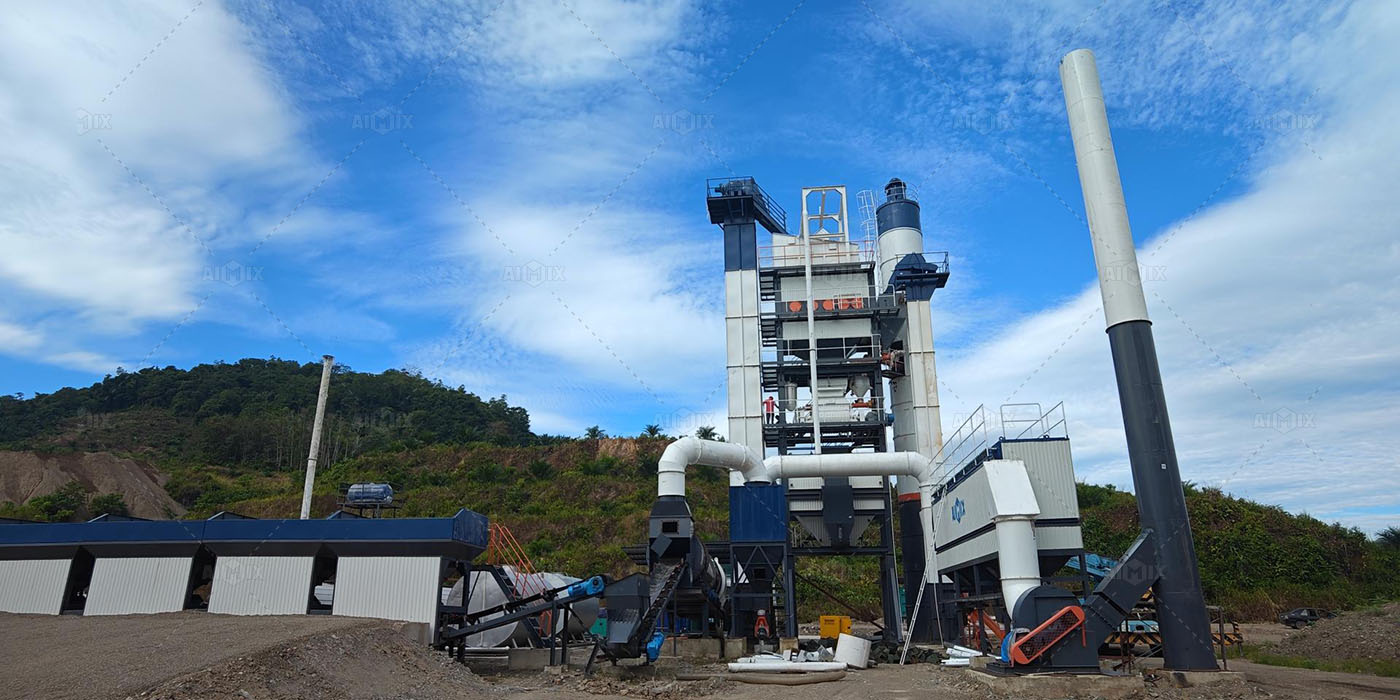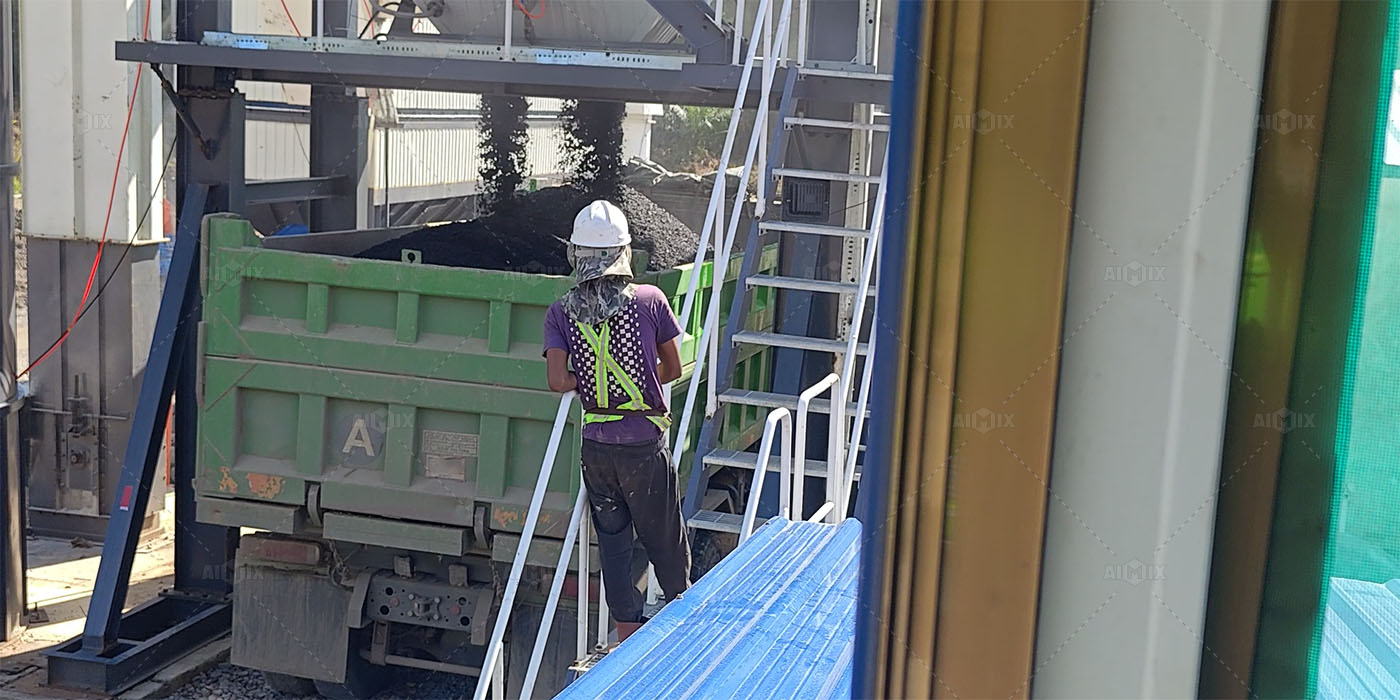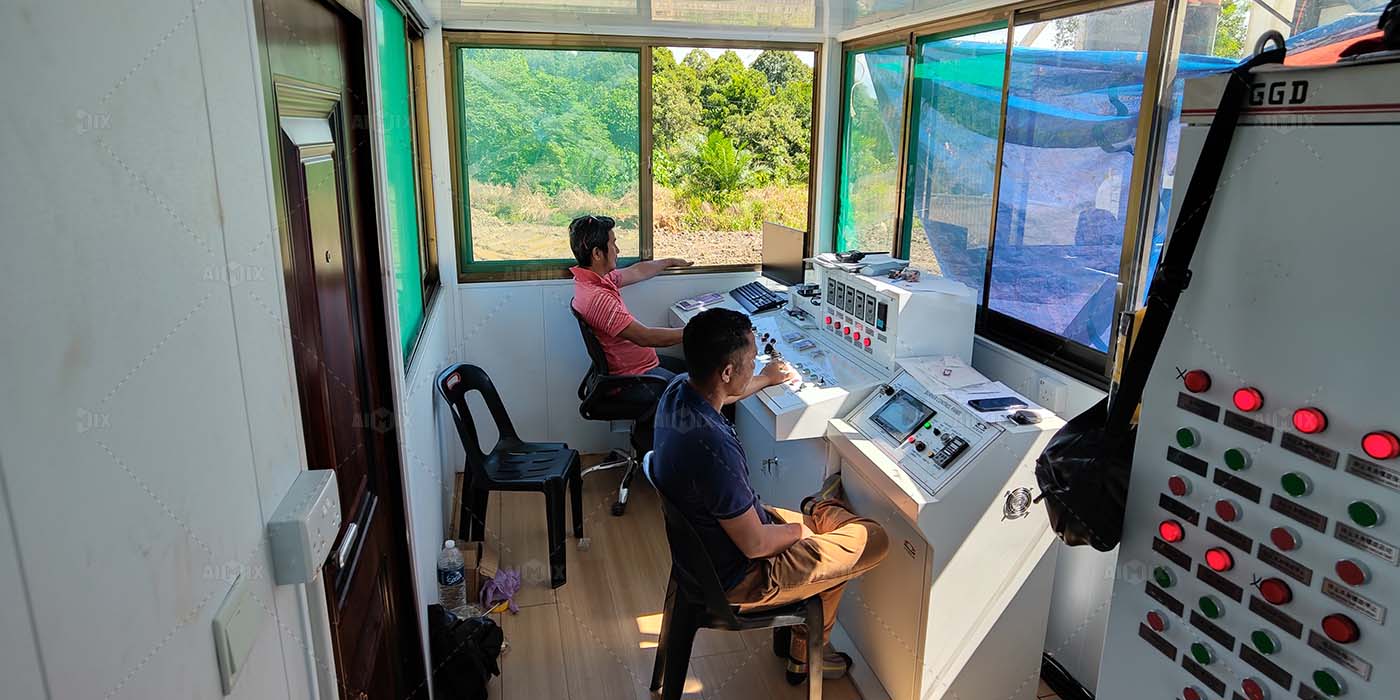Maintaining highways in Indonesia presents unique challenges due to diverse terrains, varying traffic volumes, and unpredictable weather conditions. Contractors often ponder whether an 80–100 tph asphalt mixing plant can efficiently meet the daily demands of highway repairs. This article delves into the practical aspects of utilizing such plants for road maintenance projects across Indonesia.

Assessing the Production Capacity for Highway Repairs
When considering the suitability of an asphalt mixing plant for daily highway repairs, the primary factor is its production capacity. An 80–100 tph plant can produce between 80 to 100 tons of asphalt per hour. For instance, a repair project requiring 500 tons of asphalt daily would necessitate approximately 5 to 6 hours of operation at full capacity. This aligns well with the needs of many highway maintenance projects in Indonesia.
However, it's essential to consider factors such as the plant's efficiency, the complexity of the repair work, and logistical constraints. For larger-scale projects, a local asphalt plant might be more suitable, offering higher capacities and tailored solutions for extensive repairs.
Flexibility and Mobility: Key Advantages
Highway repair projects often require mobility due to varying site locations and project timelines. The flexibility of an asphalt mixing plant is crucial in such scenarios. A hot asphalt plant offers the advantage of quick setup and relocation, making it ideal for projects spread across different regions.
Additionally, the modular design of many modern plants allows for easy transportation and installation, reducing downtime and ensuring that projects stay on schedule. This adaptability is particularly beneficial in Indonesia's diverse geographical landscape.

Ensuring Quality and Consistency
Quality control is paramount in asphalt production to ensure the longevity and durability of road repairs. An 80–100 tph asphalt mixing plant equipped with advanced technology can maintain consistent asphalt quality, meeting the stringent standards required for highway repairs.
Features such as automated mixing processes, precise temperature control, and real-time monitoring systems contribute to the production of high-quality asphalt. For contractors in Indonesia, investing in such technology can lead to improved project outcomes and client satisfaction.
Cost Efficiency and Operational Considerations
While the initial investment in an 80–100 tph asphalt mixing plant may be significant, the long-term benefits often outweigh the costs. These plants offer operational efficiency, reduced labor requirements, and lower fuel consumption, leading to cost savings over time.
Moreover, the ability to produce asphalt on-site eliminates transportation costs associated with purchasing asphalt from external suppliers. This is particularly advantageous in remote areas of Indonesia where access to materials can be limited.

Real-World Applications in Indonesia
Several projects across Indonesia have successfully utilized 80–100 tph asphalt mixing plants for highway repairs. For example, in regions like Batam and Surabaya, contractors have reported improved efficiency and quality in their road maintenance projects after deploying such plants.
These real-world applications demonstrate the feasibility and effectiveness of using medium-capacity asphalt mixing plants for daily highway repairs in Indonesia's diverse environments.
Conclusion: Meeting the Demands of Daily Highway Repairs
In conclusion, an 80–100 tph asphalt mixing plant can effectively handle the daily demands of highway repairs in Indonesia, provided that the specific requirements of each project are carefully considered. Factors such as production capacity, flexibility, quality control, and cost efficiency play crucial roles in determining the suitability of a plant for a particular project.
For contractors seeking reliable and efficient solutions for their road maintenance needs, exploring options like the jual asphalt mixing plant in Indonesia can provide valuable insights and opportunities.
Ready to Enhance Your Highway Repair Projects?
If you're looking to improve the efficiency and quality of your highway repair projects, consider investing in an 80–100 tph asphalt mixing plant. With the right equipment, you can ensure timely completion, cost savings, and durable results. Explore our range of asphalt mixing plants tailored for the Indonesian market and take the first step towards enhancing your road maintenance capabilities.